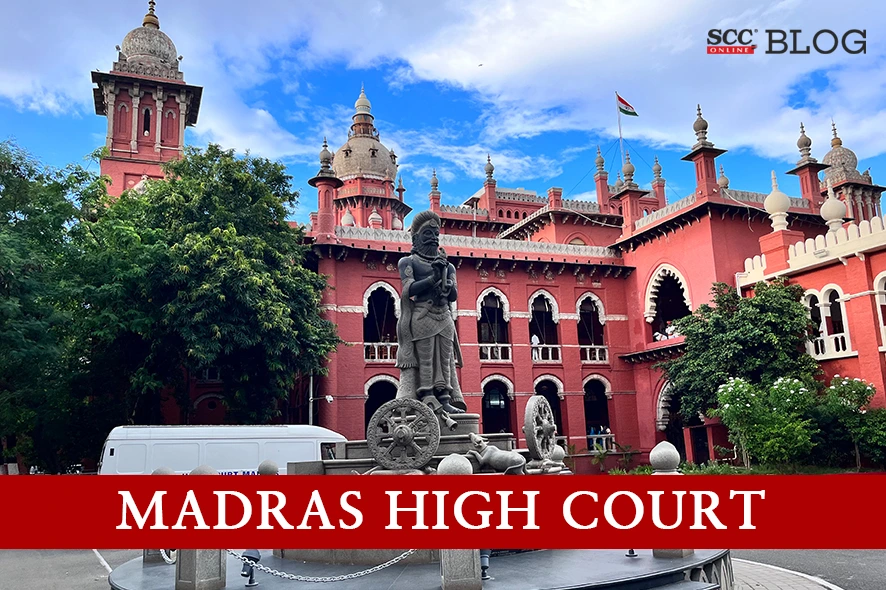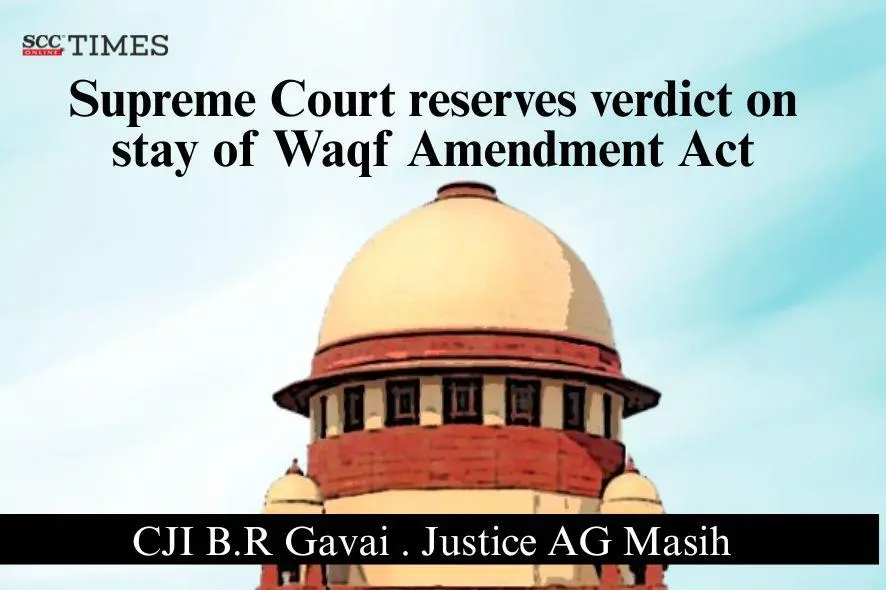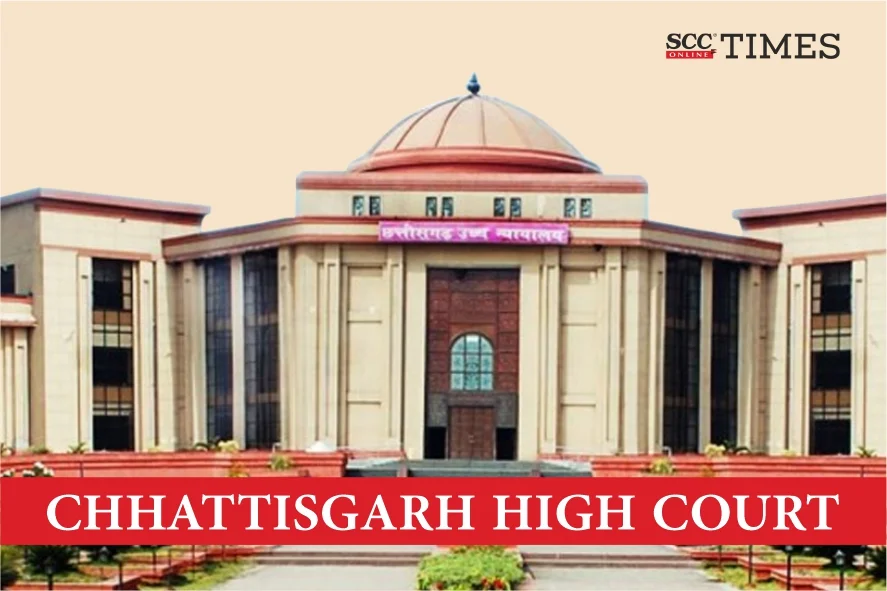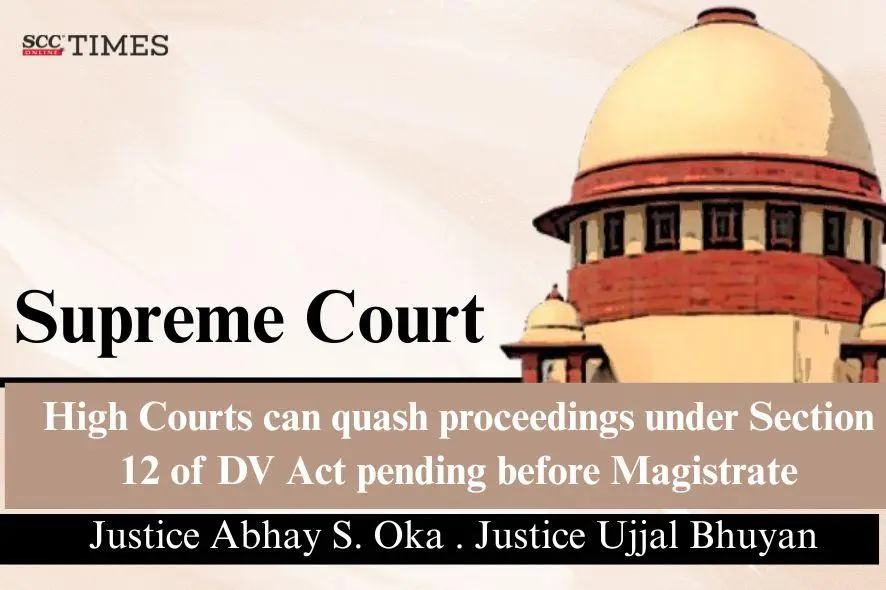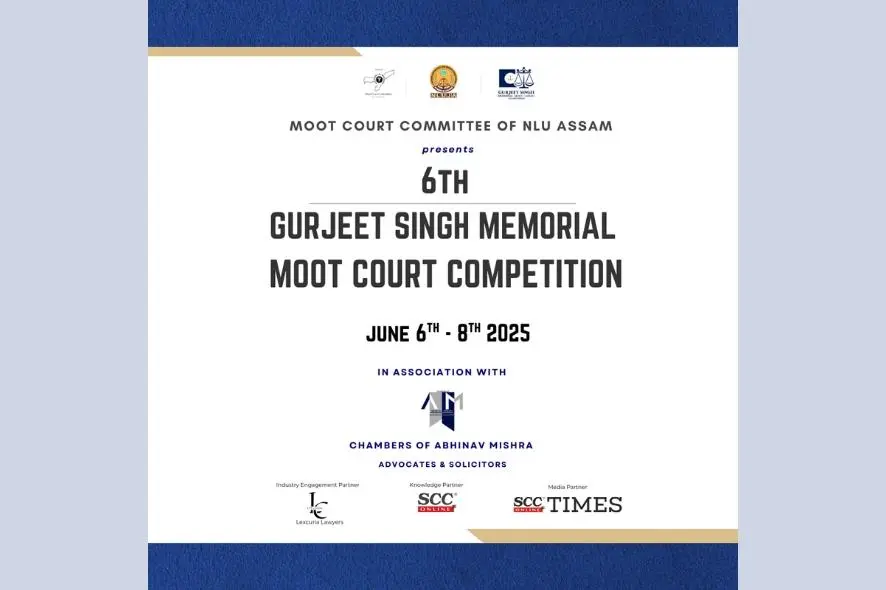Madras High Court: In an appeal filed under Section 96 of Code of Civil Procedure, 1908 (‘CPC’), praying to set aside the judgment and decree of the Additional District and Session Judge, Teeka Raman, J., has said that as the wife of the appellant was alive with the children and in the absence of any divorce as per the codified personal law for Christians, his association with the deceased cannot be termed as a live-in-relationship, thus the appellant cannot seek any succession or inheritance of the property
Thus, while upholding the judgment and decree passed by the Additional District and Session Judge, the Court said that as the father has died, then as per Section 45 of the ISA, the property would pass onto to the newly impleaded parties.
Background
The respondent is the father (now dead) of the deceased who was employed as a Headmistress in Panchayat Union School. She was living with the appellant who was already married . As the appellant’s marriage was still subsisting, he was living with the deceased without any marriage. The appellant had also transferred a settlement deed in her favor on 09-08-2010, following which she died on 24-01-2013. The dispute emerged concerning who was the rightful heir to the deceased property after her death.
The Trial Court came to the conclusion that the alleged marriage between the appellant and the deceased could not be proven legally. Additionally, as the appellant and his wife marriage was already subsisting, the relationship between the appellant and the deceased was not a live-in-relationship. Hence, the property would go to father as he is the legal heir. Aggrieved, the appellant filed the present appeal
Issues and Analysis:
-
Whether the deceased is the wife of the appellant as pleaded by him?
After referring to Section 60 of the Christian Marriage Act (‘CMA’), the Court said that one of the requirements to contract a marriage under the CMA is monogamy.
The appellant pleaded that he had obtained a customary divorce from his first wife so his marriage with the deceased was legal. However, the Court said that Section 10 of the Divorce Act does not consider a customary form of divorce, hence, his plea, could not be accepted. The appellant had also not produced any evidence to support his claim of divorcing his first wife. Hence, the appellant still had a subsisting marriage with his first wife as she was still alive, and he could not have validly contracted a second marriage with the deceased as per Section 60 of the CMA.
-
Whether the alleged “live-in-relationship” of the appellant with the deceased rip into legal status as husband of the deceased?
The Court after deciding that the appellant still has a subsisting marriage with his first wife and as per the CMA, the Principle of monogamy is a precondition for a valid marriage, said that the alleged live-in-relationship between the parties to the suit could not overshadow the legally valid marriage of the appellant and his first wife.
SUC
-
Whether the alleged marriage of the appellant with the the deceased during subsistence of the first marriage with Stella is valid or legally sustainable?
The Court said that the deceased nominating the appellant as her husband in her service records to receive terminal benefits was merely a self-declaration and did not entitle her to the status of the legally wedded wife of the appellant. It also did not make the appellant her husband. Further, the Court said that the first marriage of the appellant was not validly dissolved by a competent court under the Divorce Act as the CMA does not contemplate a ‘customary divorce’. Hence, his marriage with the deceased was invalid.
-
Whether the father is the legal heir of the deceased under the Succession Act, 1925?
As the marriage between the appellant and the deceased was invalid due to the subsisting marriage of the appellant, the Court said that it also could not be termed as a ‘live-in’ relationship. Further, the Court said that due to the absence of any codified law in this regard, the appellant could not claim succession or inheritance rights over the property of the deceased. The Court said that as per the settlement deed executed by the appellant in favour of the deceased, she was the absolute owner of the suit property. The father, being the sole surviving legal heir of the deceased, would be entitled to the suit property under Section 42 of the Succession Act (‘ISA’). The Court, therefore, did not adopt a different stance and upheld the order passed by the district judge stating that the respondent is entitled to succeed to the suit property.
-
Whether the father is entitled to a declaration of title to the suit property as prayed for?
The Court said that the suit property had been transferred by the appellant to the deceased as a gift deed under Section 122 of the Transfer of Property Act. The deceased had taken possession of the property, was residing there, and was also receiving the benefits of the property. Therefore, the gift deed was validly enacted. The father being the sole legal heir of his daughter was entitled to the enjoyment of the property under Section 42 of the ISA. He is, therefore, also entitled to the relief of declaration of the title deed of the suit property in his favor.
The Court further delineated the difference between relationship in the nature of marriage versus marital relationship The Court referred to the conditions for a live-in relationship laid down in Indra Sarma v. V.K.V. Sarma, (2013) 15 SCC 755 and said that a relationship of marriage subsists as long as it has legal status despite the differences that arise between the spouses, it subsists even when they do not share the same household because it has legal sanction.
However, a ‘live-in’ relationship is an arrangement which ends as soon as the parties decide that they do not wish to live together in such a relationship. In the instant case, the Court said that the appellant entered a live-in-relationship with the deceased despite the fact that he had a subsisting marriage and five children. The presumption of law as per Section 114 of the Evidence Act that a man and woman living together would be seen as a marital couple does not apply here as the appellant was already married and the deceased was the appellant’s concubine. The relationship is not one in the nature of marriage as it is not monogamous in nature. Hence, the Court said that the appellant had, by getting into such a relationship, committed an intentional tort. The Court further stated that the term ‘live-in’ relationship is being misused by people in extramarital relationships and this needs to be done away with.
[P. Jayachandran v. A. Yesuranthinam, 2024 SCC OnLine Mad 2502, decided on 07-06-2024]
Advocates who appeared in this case :
For the Appellant: Advocate C. Shankar
For Respondents: Advocate G. Jeremiah


